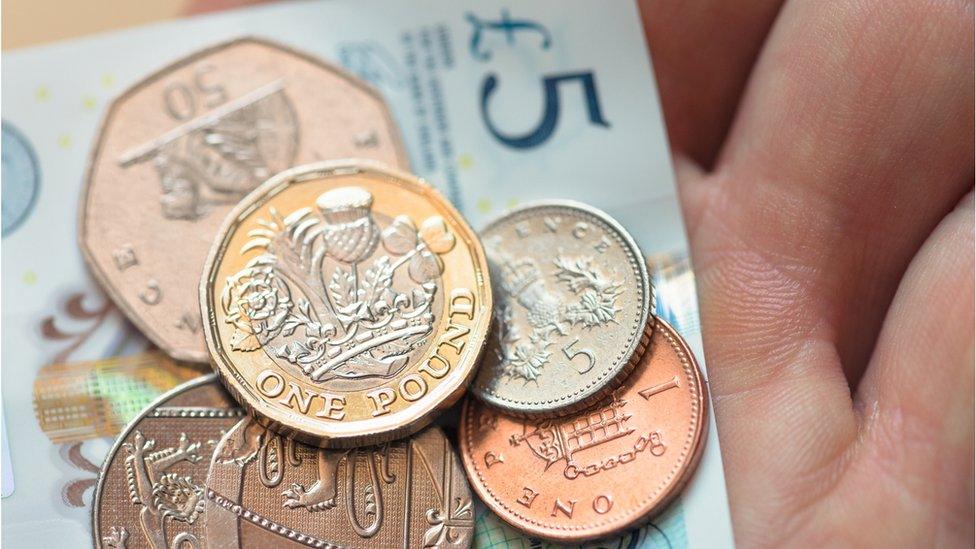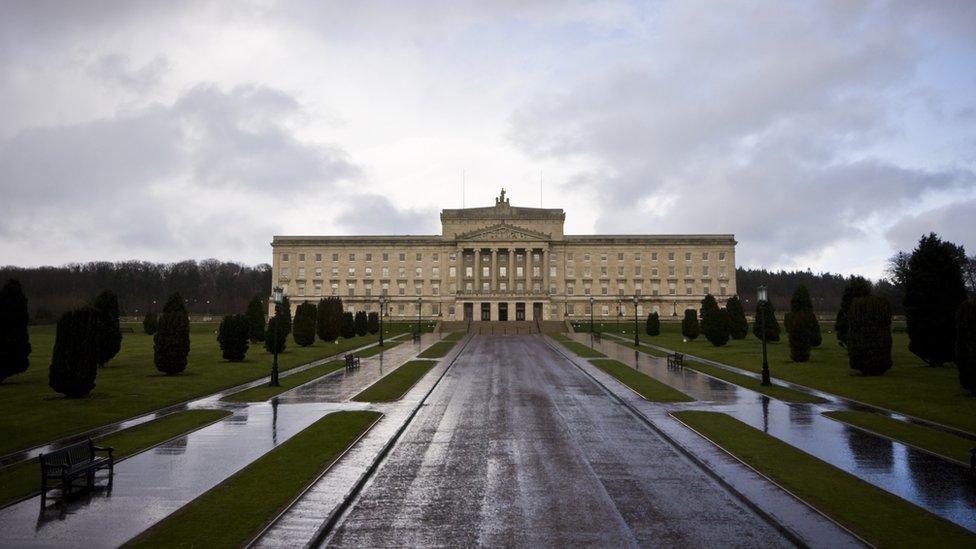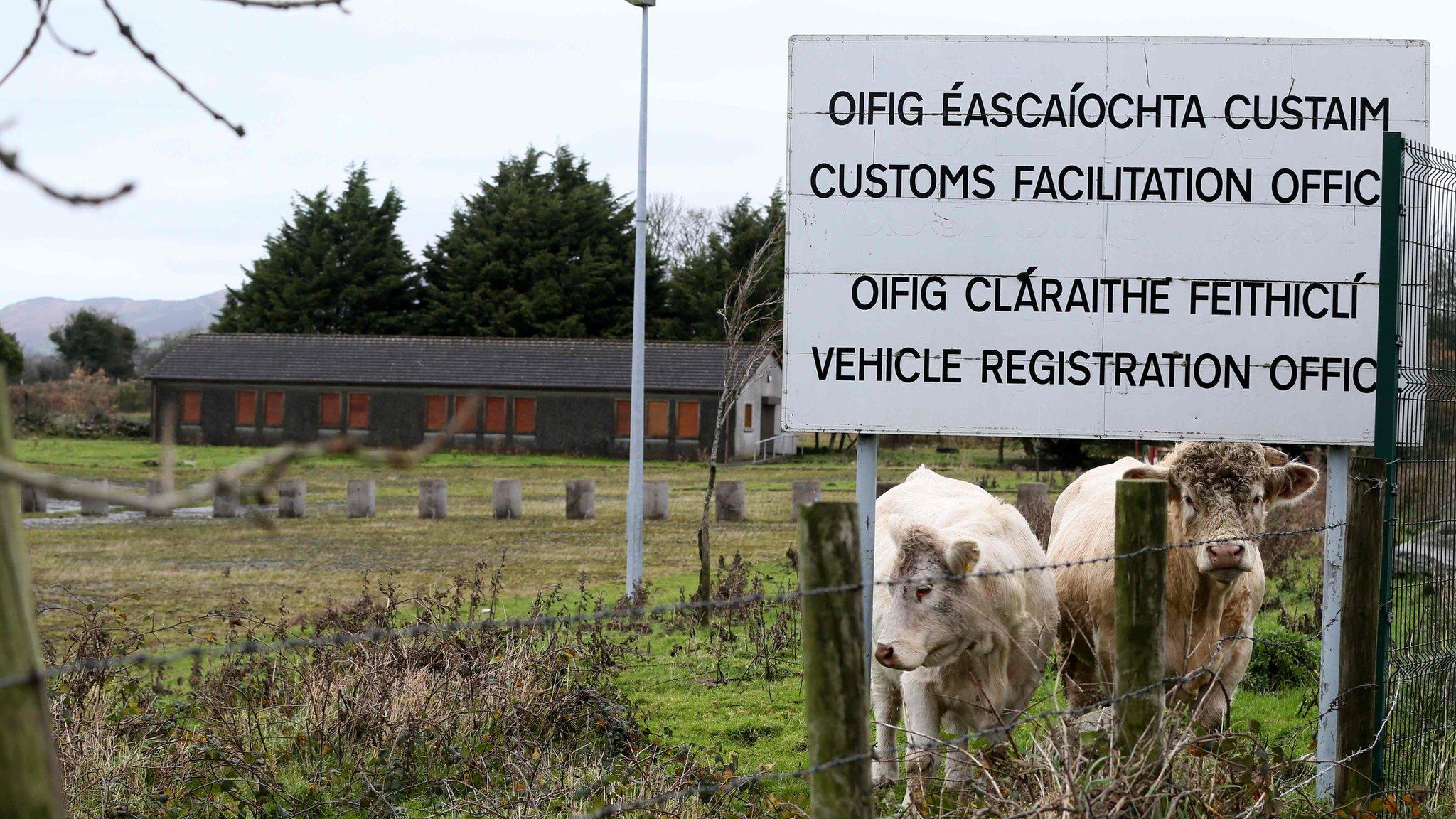Brexit: Benefits of weaker pound to Northern Ireland downplayed
- Published

A weaker currency can benefit exporters by making their products cheaper in overseas markets
Stormont's Department for the Economy has downplayed suggestions a weakening of the pound after a no-deal Brexit would benefit the local economy, external.
A weaker currency can help exporters by making their products cheaper in overseas markets.
The department said in the past it helped boost cross-border shopping and tourism from the Republic of Ireland.
But it said past benefits from weaker sterling are not likely to be replicable in a no deal scenario.
It said one of the major factors will be the new tariff and non-tariff costs that will apply to exports, particularly in the food and agriculture sector.
"The presence of high tariffs will mean that most UK agricultural exports to the EU will no longer be competitive on the EU market," the department said.
"Therefore higher prices for exports in Sterling terms will not materialise.
"Overall the majority of NI's exports go to countries within the EU (57% in 2017), with Ireland being our most prominent trading partner.

According to Stormont's Department for the Economy, past benefits from a weaker Sterling are not likely to be replicable in a no deal scenario
"Therefore, unless there is a dramatic shift to trading with other non-EU countries subject to more favourable trade deals, it is likely that a large portion of NI exporters will face an increase in costs which is likely to erode gains from a weaker Sterling."
It also assessed that any boost to cross-border shopping is likely to be temporary as the price of imported products rise.
It said: "In theory, a weaker pound should encourage more Irish residents to make the journey to NI to do their shopping as it should be less expensive than shopping in Euro.
"However, this is only likely to happen if prices in NI are not adversely affected which, given the impact of depreciation on the cost of imports and inflation, is unlikely to be the case."
The report concludes that "further depreciation of Sterling is likely to represent a risk to the NI economy and to those on low incomes in particular.
"The scale of this risk is likely to depend on the significance of any depreciation and how this affects expected overall changes in trade," the department said.
- Published26 September 2022

- Published29 July 2019

- Published13 December 2020
